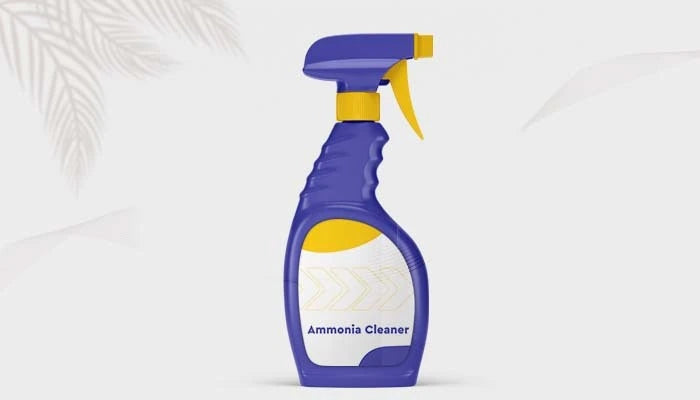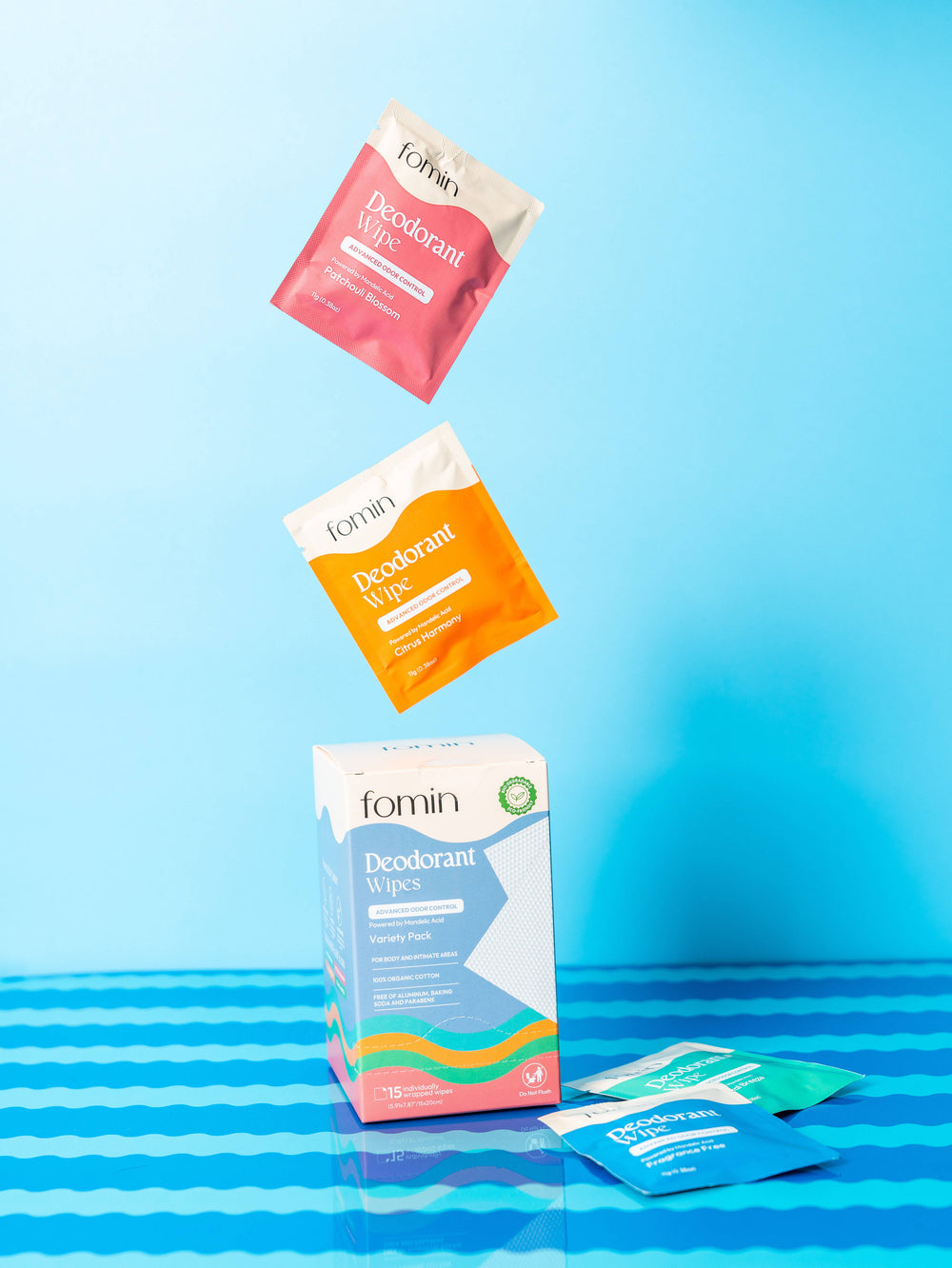
What Is Ammonia Cleaner? Pros and Cons of Using It As A Cleaning Agent
Share
In our daily lives, cleanliness plays a crucial role in maintaining a healthy and hygienic environment. Whether it's our homes, workplaces, or public spaces, effective cleaning products are essential for ensuring cleanliness and preventing the spread of germs and bacteria. However, with a wide range of cleaning products available, it's important to make informed choices.

This article aims to provide a comparative study between ammonia-based cleaners and non-ammonia cleaners, shedding light on their composition, benefits, limitations, performance, health considerations, and environmental impact. By delving into the characteristics of these two types of cleaners, we can make more informed decisions and choose the right cleaner for our specific needs, promoting cleanliness and well-being in our everyday lives.
Understanding the Importance of Cleaners in Everyday Life
The Role of Cleaners In Maintaining Cleanliness
From our homes to workplaces, keeping our surroundings clean and tidy contributes to a comfortable and healthy environment. Cleaners play a vital role in maintaining cleanliness by removing dirt, grime, and germs that accumulate on various surfaces. Whether it's scrubbing floors, disinfecting countertops, or freshening up fabrics, cleaners are our trusted companions in the battle against dirt and mess.
Impact of Ammonia Cleaning Products On Health And Environment
While cleaners help us achieve a clean environment, it's crucial to understand their impact on our health and the environment. Some ammonia cleaning products contain harsh chemicals that can have adverse effects on our well-being.
Additionally, certain ingredients may contribute to air and water pollution when they are washed down the drain. As awareness grows about the importance of sustainable and eco-friendly choices, it becomes necessary to evaluate different types of cleaners and their impact on both our health and the planet.
Exploring Ammonia-based Cleaners: Composition, Benefits, and Limitations
Understanding The Composition of Ammonia-Based Cleaners
Ammonia-based cleaners are commonly used for a variety of cleaning tasks. They typically consist of ammonia combined with water and other ingredients. Ammonia, a colorless gas with a distinct pungent smell, acts as the primary cleaning agent. Its powerful properties help dissolve grease, remove stains, and cut through dirt, making it an effective choice for many cleaning applications.

Advantages of Using Ammonia-based Cleaners
Ammonia-based cleaners offer several advantages. They are highly effective in cutting through tough grime and grease, making them suitable for tasks like cleaning ovens and stovetops. These cleaners also evaporate quickly and don't leave behind residue, which can save time and effort during the cleaning process. Furthermore, ammonia-based cleaners are often more affordable compared to some alternative options, making them a budget-friendly choice for many households.
Limitations And Potential Drawbacks of Ammonia-Based Cleaners
While ammonia-based cleaners have their benefits, they also come with some limitations. The pungent odor of ammonia can be overpowering and unpleasant for some individuals, requiring proper ventilation during use. Additionally, ammonia is known to be corrosive, so it's essential to avoid using it on certain surfaces like marble or granite, as it can cause damage. Moreover, the strong chemical nature of ammonia may pose health risks if not used with caution, particularly in enclosed spaces.
Delving into Non-Ammonia Cleaners: Types, Advantages, and Drawbacks
Overview of Different Types of Non-Ammonia Cleaners
Non-ammonia cleaners encompass a wide range of options, including natural, eco-friendly, and plant-based products. These cleaners utilize alternative ingredients, such as citric acid, vinegar, baking soda, and plant extracts, to provide effective cleaning power without the use of ammonia or other harsh chemicals.
Benefits And Advantages of Non-Ammonia Cleaners
Non-ammonia cleaners offer several benefits that appeal to environmentally conscious consumers. They are typically biodegradable and safer for both human health and the environment. Non-ammonia cleaners often have milder scents or even fragrance-free options, making them a more pleasant choice for those sensitive to strong odors. Moreover, many non-ammonia cleaners can be used on a variety of surfaces, including delicate materials, without the risk of damaging them.

Drawbacks And Limitations of Non-Ammonia Cleaners
While non-ammonia cleaners are generally considered safer and eco-friendly, they may have limitations in terms of their cleaning power. Some natural cleaners may require more effort or multiple applications to achieve the same level of effectiveness as their ammonia-based counterparts. Additionally, certain types of non-ammonia cleaners may be more expensive compared to conventional options, reflecting the use of higher-quality natural ingredients and manufacturing processes.
Fomin’s Ammonia-Free Products
In an era where plastic pollution has become an alarming global issue, it is crucial to seek innovative solutions to reduce its devastating impact on our oceans and ecosystems. Annually, an astounding 8 million metric tons of plastic waste goes into our oceans, endangering marine life and the sensitive equilibrium of biodiversity on Earth. Fomin, a pioneer in sustainable initiatives, has driven the movement toward a plastic-free planet.
By purchasing Fomin's eco-friendly cleaning products, you actively participate in the battle against plastic pollution. Join our loyalty program to participate in building a sustainable future - one where plastic is not a threat but a relic of the past.
Comparative Analysis: Performance and Efficacy of Ammonia vs. Non-Ammonia Cleaners
Evaluating The Cleaning Performance
Ammonia-based cleaners are known for their powerful cleaning properties and effectiveness in tackling tough dirt and grime. Their ability to cut through grease and stains makes them a go-to choice for many demanding cleaning tasks. However, it's essential to consider the specific surfaces and areas where ammonia-based cleaners are applied to prevent potential damage and ensure safe usage.
Assessing The Effectiveness of Non-Ammonia Cleaners
Non-ammonia cleaners have made significant strides in providing viable alternatives for those seeking safer and eco-friendly cleaning options. These cleaners, though sometimes requiring a bit more elbow grease, can still deliver satisfactory cleaning results across a range of surfaces. Innovative formulations and natural ingredients have enabled non-ammonia cleaners to effectively remove dirt and grime while maintaining a safer and greener approach.
Which Type of Cleaner Is More Efficient?
Determining the most efficient type of cleaner depends on various factors, including specific cleaning needs, preferences, and surface considerations. Ammonia-based cleaners excel in cutting through heavy grease and grime, making them ideal for tough cleaning tasks. On the other hand, non-ammonia cleaners offer a safer and more environmentally friendly option, albeit with potentially longer cleaning times. Ultimately, the choice between ammonia and non-ammonia cleaners depends on balancing effectiveness, safety, and personal values.
Environmental Impact: Assessing the Ecological Footprint of Ammonia and Non-Ammonia Cleaners
Analyzing The Environmental Impact of Ammonia-Based Cleaners
Ammonia-based cleaners may pack a punch when it comes to cleaning power, but they can also pack a punch on the environment. The production and disposal of ammonia can contribute to water pollution and harm aquatic life. So, if you're a friend of the fish, it might be worth considering greener alternatives.
Non-ammonia cleaners, on the other hand, have the potential to leave a smaller footprint on Mother Earth. Many non-ammonia cleaners are formulated with biodegradable ingredients and are free from harmful chemicals. This means fewer toxins in the water supply and less harm to the delicate balance of our ecosystems. Nature will thank you!
Which Is More Environmentally Friendly?
When it comes to sustainability, non-ammonia cleaners take the lead. By choosing eco-friendly options, you can contribute to a healthier planet without compromising on cleanliness. So go ahead, save the world one clean surface at a time!
The Ease of Home Cleaning with Fomin
Cleaning is a chore that no one particularly enjoys, but Fomin makes the task more manageable. The convenience of Fomin lies in its multi-purpose nature, designed to tackle various surfaces and messes easily. Whether you're dealing with kitchen grease, bathroom grime, or general household dirt, our surface cleaner refill is formulated to simplify the cleaning process, reducing the time and effort required.
One of its standout features is its user-friendly design. The cleaning solution comes in tablet form, eliminating the need for bulky bottles and excess packaging. This simplicity streamlines the cleaning routine and minimizes plastic waste, contributing to a cleaner environment.
Practical Applications: Choosing the Right Cleaner for Your Cleaning Needs
Determining The Suitable Cleaner For Different Surfaces And Materials
Choosing the right cleaner for the job is like finding the perfect match on a dating app. You want compatibility! Ammonia-based cleaners are great for cutting through grease on glass and stainless steel, while non-ammonia cleaners are better suited for delicate surfaces like marble or wood. Match made in cleaning heaven!
Understanding The Compatibility of Ammonia And Non-Ammonia Cleaners
Just like a dance partner, cleaners need to be in sync with their tools. For example, ammonia-based cleaners should never be mixed with bleach as it can produce toxic fumes (and nobody wants that). On the other hand, non-ammonia cleaners can be used with a wide range of cleaning tools without causing any chemical reactions. Keep that harmonious cleaning routine going!
Considering Factors Like Effectiveness, Scent, And Ease Of Use In Decision-Making
When it comes to cleaning, effectiveness is key. Ammonia-based cleaners are known for their powerful stain-busting abilities, while non-ammonia cleaners often excel in leaving a fresh and pleasant scent. It's all about what makes your cleaning experience a breeze and leaves your home smelling like a field of daisies. Choose the cleaner that speaks to your cleaning soul!
The Verdict - Make an Informed Choice
In conclusion, the comparative study between ammonia-based cleaners and non-ammonia cleaners has highlighted the strengths and weaknesses of each type. While ammonia-based cleaners offer powerful cleaning properties, there are potential health risks and environmental concerns to consider.
On the other hand, non-ammonia cleaners provide a safer and more eco-friendly option, although they may have limitations in terms of cleaning efficacy. Ultimately, it is crucial to prioritize our health, safety, and the well-being of the environment when choosing ammonia cleaning products.
By understanding the differences and making informed decisions, we can promote effective cleaning practices that strike a balance between cleanliness and sustainability in our everyday lives.
Frequently Asked Questions
Are ammonia-based cleaners more effective than non-ammonia cleaners?
Ammonia-based cleaners are often known for their strong cleaning properties, making them effective for various tasks. However, the efficacy of a cleaner depends on the specific cleaning needs and the surfaces being cleaned. Non-ammonia cleaners can also be highly effective, especially when used correctly and for their intended purposes. It is important to assess the cleaning requirements and choose the appropriate cleaner accordingly.
Are ammonia-based cleaners safe to use?
While ammonia-based cleaners can be effective, they do come with potential health risks. Ammonia fumes can irritate the eyes, nose, and throat, and can be particularly harmful to individuals with respiratory issues or sensitivities. It is crucial to use ammonia-based cleaners in a well-ventilated area and follow the manufacturer's instructions carefully. For individuals with allergies or concerns about chemical exposure, non-ammonia cleaners may be a safer alternative.
Do non-ammonia cleaners have any drawbacks?
Non-ammonia cleaners have their own set of considerations. Some non-ammonia cleaners may not have the same level of cleaning power as ammonia-based cleaners, especially when it comes to tackling tough stains or grime. Additionally, certain non-ammonia cleaners may contain other chemicals that could pose health or environmental risks. It is important to read labels, research product ingredients, and choose non-ammonia cleaners that are free from harmful substances.
How can I choose the right cleaner for specific cleaning tasks?
When selecting a cleaner, it is essential to consider the type of surface you are cleaning and the specific cleaning requirements. For general cleaning tasks, non-ammonia cleaners can often provide safe and effective results. However, for heavy-duty cleaning, ammonia-based cleaners may be more suitable. Always read product labels, follow recommended usage instructions, and consider any health or environmental factors before making a decision.




